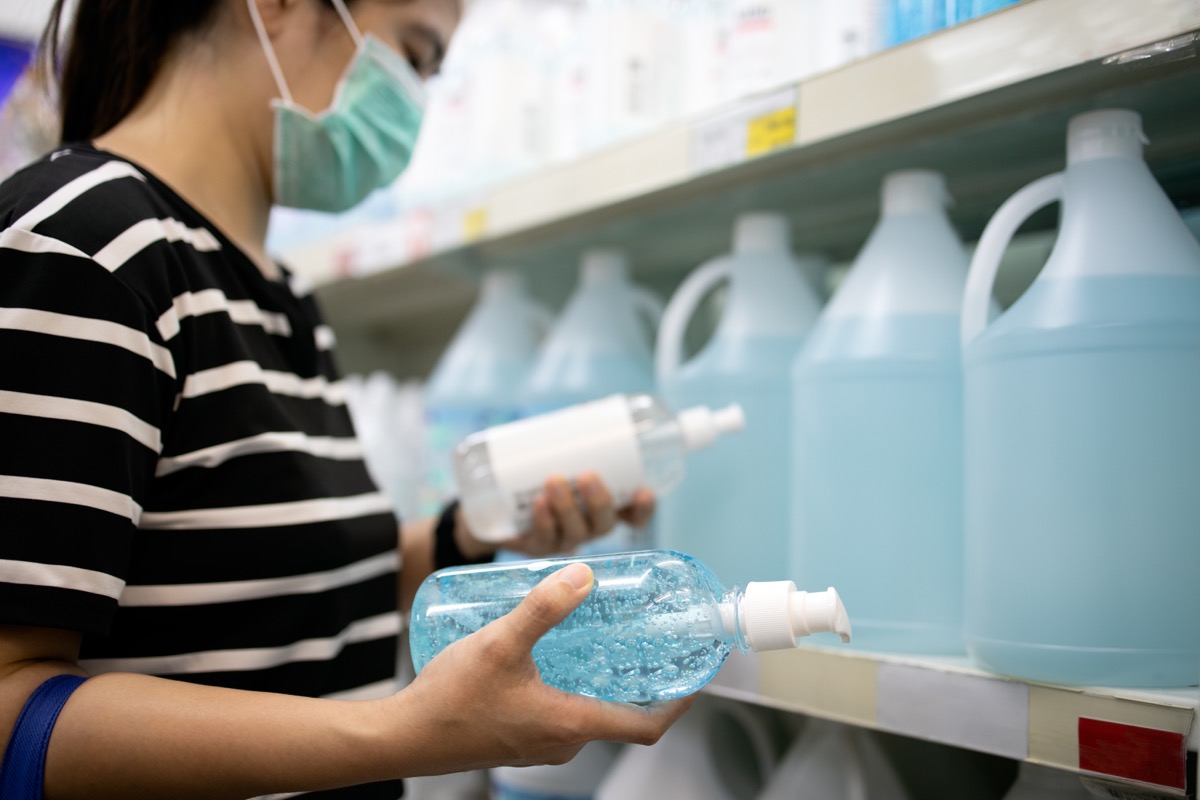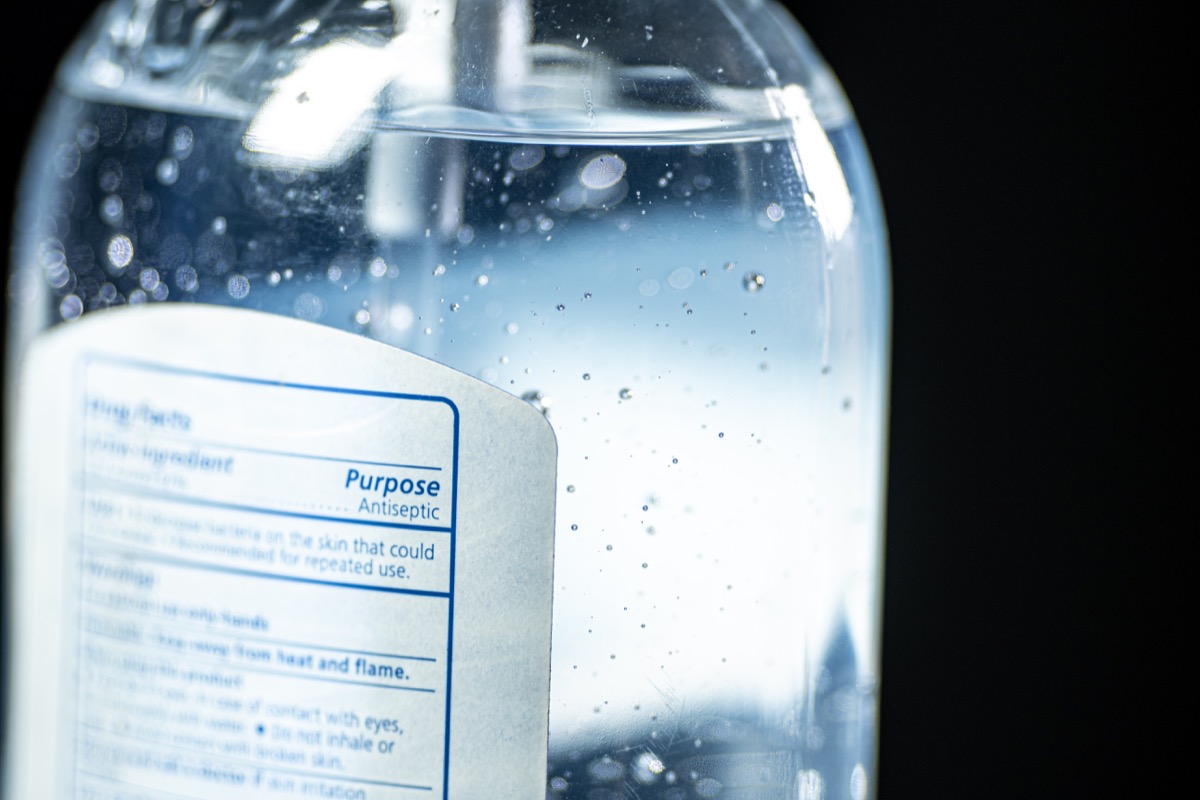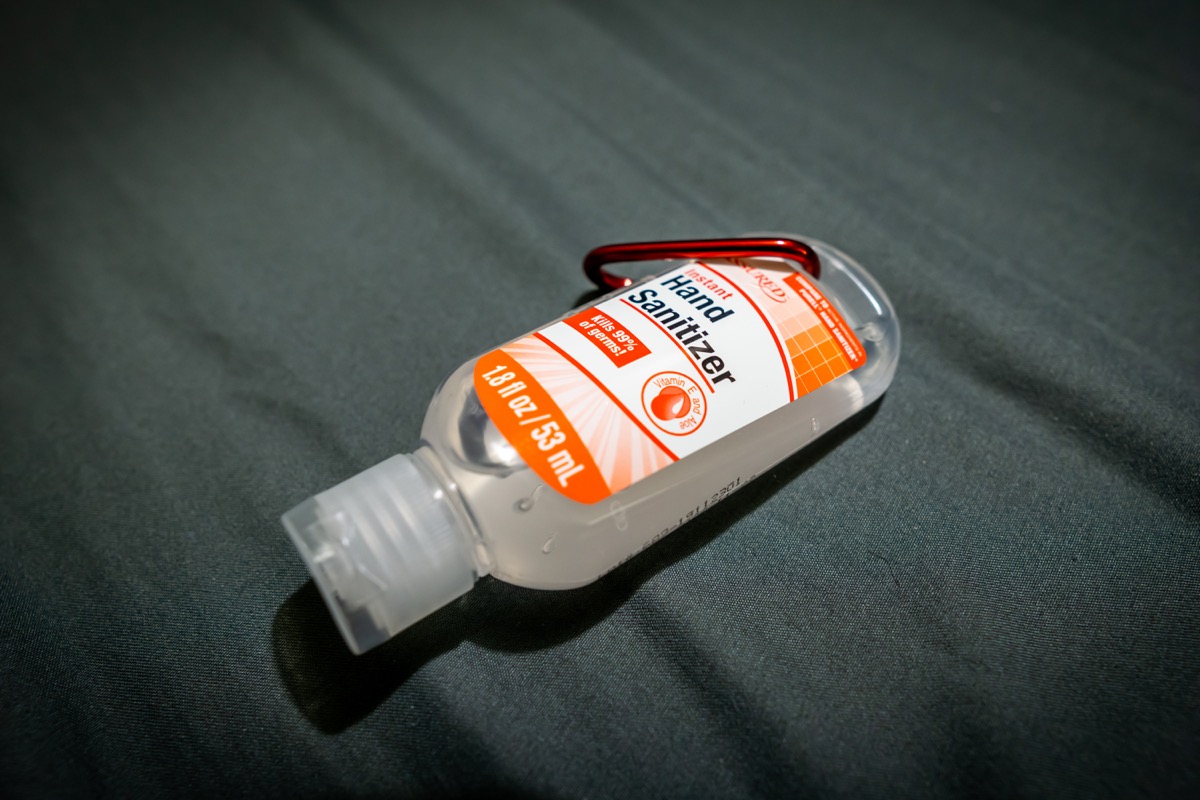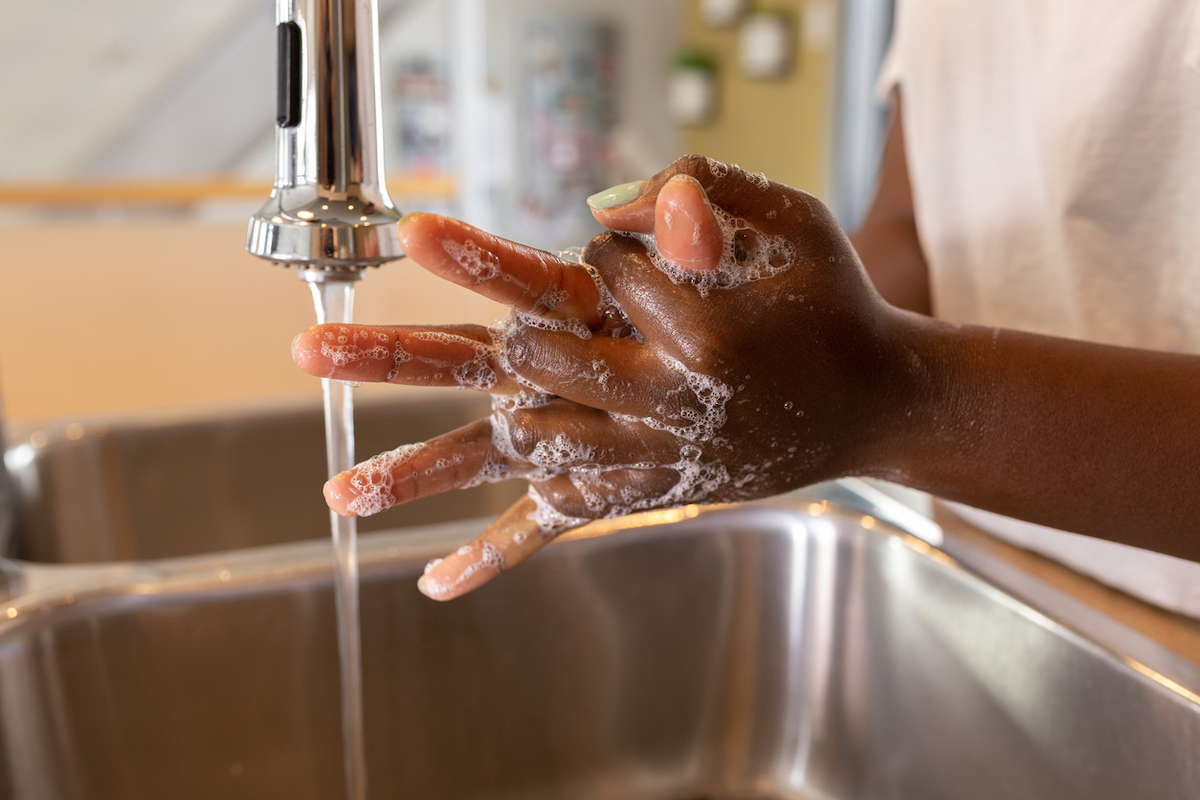When it comes to choosing a hand sanitizer, picking one with the right ingredients to help protect you from harmful microbes and pathogens—including coronavirus—is the key. What does the trick? You need to grab a hand sanitizer made with at least 60 percent ethyl alcohol or 70 percent isopropyl alcohol, the CDC says. And for more ways to stay safe from COVID, check out 15 Things the CDC Says You Shouldn’t Be Touching With Unwashed Hands. Besides having enough of an active ingredient to be effective, it’s also important to make sure you’re not making a mistake by choosing a hand sanitizer made with the wrong base ingredient. According to the Food and Drug Administration (FDA), that means you shouldn’t be going for anything made with benzalkonium chloride instead of alcohol for protection from coronavirus. “Hand sanitizer prepared under FDA’s temporary policies during the COVID-19 public health emergency… cover only alcohol-based (ethanol and isopropyl alcohol) hand sanitizer,” the FDA states. “[Our] temporary policies do not cover the use of other active or inactive ingredients not otherwise mentioned in the guidance for use in hand sanitizer, including benzalkonium chloride.” And if you need to buy some new hand sanitizer, you should stock up soon because This Is When Experts Say the Next COVID Surge Will Happen in the U.S. It should go without saying that your hand sanitizer should be protecting you, not harming you. But with the intense demand created by the coronavirus pandemic, some products have flooded the market that contain ingredients that are poisonous. Any hand sanitizers that use methanol (otherwise known as wood alcohol) or 1-propanol should be avoided, as accidentally ingesting them can cause “central nervous system depression that can be fatal,” HealthDay reports. And for more on this, check out The FDA Wants You to Stop Using These 60 Toxic Hand Sanitizers Right Now. Flashy packaging may be designed to entice you to pick a hand sanitizer up from the shelf. But doing so could be putting the little ones in your life in potential danger—especially if they look like something you can eat.ae0fcc31ae342fd3a1346ebb1f342fcb “I am increasingly concerned about hand sanitizer being packaged to appear to be consumable products, such as baby food or beverages,” said FDA Commissioner Stephen Hahn, MD, in a statement in August. “These products could confuse consumers into accidentally ingesting a potentially deadly product. It’s dangerous to add scents with food flavors to hand sanitizers which children could think smells like food, eat and get alcohol poisoning.” Hand sanitizer makes it possible to do errands in public without having to run to a sink every time you enter a new building. But while it’s convenient, you should still take the opportunity to wash your hands with warm water and soap as often as possible as it is the most effective at removing germs, according to the CDC. And if you’re concerned you could have contracted COVID, check out These Are the 51 Most Common COVID Symptoms You Could Have.




